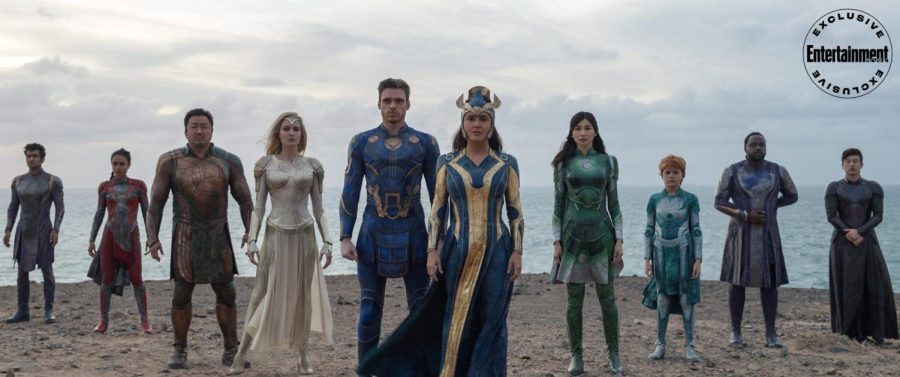“Beasts of No Nation” is a film about a fictional war set in a fictional African country yet it feels all too real. The film follows Agu (Abraham Attah) after his father and brother are killed by the army. While fleeing for his life, Agu is captured by a battalion of rebels whose mission is to overthrow the government to give power back to the people. The leader of these rebels is a man who goes by the title of “the Commandant.” The Commandant, who is expertly portrayed by Idris Elba, trains Agu to become a child soldier and fight against the government to avenge his family’s deaths.
An intriguing aspect of this film is the Commandant’s indoctrination process of these child soldiers. It is a forceful process yet subtle enough that Agu becomes a trained killer before his better judgment can save him. There is nothing Agu can do about his position either. The Commandant gives his fighters a grim ultimatum: kill or be killed.
Watching these child soldiers kill others is difficult to watch. There are moments of unexpected brutality that made me realize, as a sheltered American, that there is not much that separates the stability of my country from the anarchy and unbridled violence of Africa.
Religion is a theme that is explored heavily in “Beasts.” Usually it serves as the rationale for doing despicable evil. The Commandant often encourages his battalion’s acts of violence by reminding them that God is pleased by their violence because it brings about his plan.
“Beasts of No Nation” is unique in that, for much of the film, there is no protagonist to root for. We want to root for Agu in his search for normality, safety and his family but his horrific acts of violence prevent us from doing so. Instead, we wind up pitying him and are reminded of the costs that war can have on the human psyche, especially those of the young.
There have been murmurings that this movie is designed as propaganda, that writer/director Cary Fukunaga filmed violent atrocities for the sake of shock value and that perhaps the film is not redemptive enough to avoid being a work of sensationalism.
Personally, I stand with Fukunaga and his vision and believe that what he has made is a film that looks at the human cost of war without shying away from its ugliest moments. It is frustrating to watch Agu’s sense of right and wrong vanish as he becomes almost unrecognizable, transforming into the same type of person that killed his family.
The saddest part about “Beasts of No Nation” is watching Agu who, at the film’s start, describes himself as “a good boy from a good family,” decline and lose his identity.
There are also times that are painful to watch as Agu recognizes the monster he has become while realizing that there is no way for him to escape the hole that he has dug himself into. This transformation proves that the line between innocence and evil is incredibly thin.







